Happy 4th of July! This week in the US we’re celebrating the Revolutionary War. There will be food, fireworks, and of course, books—because there’s no such thing as a holiday without reading, at least not for us! Since we’re celebrating a revolution, we thought we’d share with your our list of some of our favorite revolutions and rebellions in science fiction and fantasy. What are we missing?
Mistborn by Brandon Sanderson
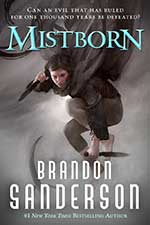 In Brandon Sanderson’s Mistborn trilogy, it’s a revolution wrapped in a heist. When Vin, a young Mistborn, joins a crew of Misting thieves, she thinks their only goal is to steal the Lord Ruler’s atium stash—an incredibly rare, and therefore valuable, metal that allows Mistborn to see the future. Of course, things get much more complicated very quickly as Vin, and the reader, find that crew leader Kelsier has much more dangerous goals: to overthrow the city of Luthadel and destroy the Lord Ruler himself.
In Brandon Sanderson’s Mistborn trilogy, it’s a revolution wrapped in a heist. When Vin, a young Mistborn, joins a crew of Misting thieves, she thinks their only goal is to steal the Lord Ruler’s atium stash—an incredibly rare, and therefore valuable, metal that allows Mistborn to see the future. Of course, things get much more complicated very quickly as Vin, and the reader, find that crew leader Kelsier has much more dangerous goals: to overthrow the city of Luthadel and destroy the Lord Ruler himself.
The Grace of Kings by Ken Liu
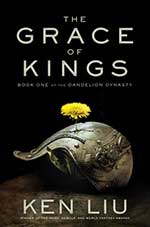 Ken Liu’s debut novel The Grace of Kings tells the story of two very different rebel leaders: Kuni Garu and Mata Zyndu. The conflict in this one isn’t just about the fight against tyranny, but in the relationship between the wily, charming bandit Kuni and stern aristocrat Mata. Their goals may start out in alignment, but what happens once the fighting is done? Once the rebellion has ended, the true problems have just begun!
Ken Liu’s debut novel The Grace of Kings tells the story of two very different rebel leaders: Kuni Garu and Mata Zyndu. The conflict in this one isn’t just about the fight against tyranny, but in the relationship between the wily, charming bandit Kuni and stern aristocrat Mata. Their goals may start out in alignment, but what happens once the fighting is done? Once the rebellion has ended, the true problems have just begun!
Tigana by Guy Gavriel Kay
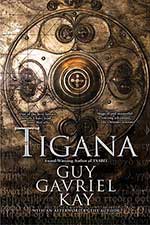 What happens when a small, divided peninsula is invaded on two sides? When the conquerors use magic, as well as might? Those are only a few of the questions posed in Guy Gavriel Kay’s Tigana. In this standalone fantasy novel, a small band of rebels from a province forcibly forgotten by magic use guile and trickery to try to free their home from the massive armies of the two rival sorcerers who have conquered it. When you can’t compete on the battlefield, sometimes trickery can win the day!
What happens when a small, divided peninsula is invaded on two sides? When the conquerors use magic, as well as might? Those are only a few of the questions posed in Guy Gavriel Kay’s Tigana. In this standalone fantasy novel, a small band of rebels from a province forcibly forgotten by magic use guile and trickery to try to free their home from the massive armies of the two rival sorcerers who have conquered it. When you can’t compete on the battlefield, sometimes trickery can win the day!
The Word for World is Forest by Ursula K. Le Guin
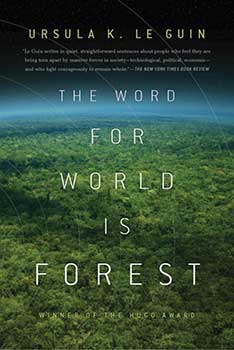 When humanity moves into the stars, will we go as peaceful partners, or conquerors? Le Guin’s classic novel posits that we may not always be benevolent. In The Word for World is Forest, Terrans have enslaved the peaceful people of Athshe, and use them to harvest the forests that cover their world, since lumber has become scarce on Earth. If you visit enough atrocities upon them, however, even a peaceful people will eventually rise up against you—as the Athsheans eventually do, introducing mass violence to their previously pacifistic culture. The Word for World is Forest is short, but hard-hitting; Le Guin doesn’t pull any metaphorical punches.
When humanity moves into the stars, will we go as peaceful partners, or conquerors? Le Guin’s classic novel posits that we may not always be benevolent. In The Word for World is Forest, Terrans have enslaved the peaceful people of Athshe, and use them to harvest the forests that cover their world, since lumber has become scarce on Earth. If you visit enough atrocities upon them, however, even a peaceful people will eventually rise up against you—as the Athsheans eventually do, introducing mass violence to their previously pacifistic culture. The Word for World is Forest is short, but hard-hitting; Le Guin doesn’t pull any metaphorical punches.
Throne of the Crescent Moon by Saladin Ahmed
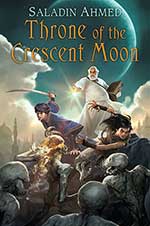 Should you defend a rightful ruler if he’s also pretty awful? That’s one of the big questions for the characters in Saladin Ahmed’s debut novel. The aging ghul hunter Doctor Adoulla Makhslood, his assistant Raseed bas Raseed, and the magic shape-shifter Zamia Badawi thought they were on the trail of a killer. Instead, they discover a fomenting rebellion against the rightful Khalif—who’s also a terrible person. All Adoulla wants is to retire and drink tea in peace, but it doesn’t look like that’s going to happen anytime soon if the Falcon Prince, the iron-fisted Khalif, and a brewing power struggle have anything to do with it.
Should you defend a rightful ruler if he’s also pretty awful? That’s one of the big questions for the characters in Saladin Ahmed’s debut novel. The aging ghul hunter Doctor Adoulla Makhslood, his assistant Raseed bas Raseed, and the magic shape-shifter Zamia Badawi thought they were on the trail of a killer. Instead, they discover a fomenting rebellion against the rightful Khalif—who’s also a terrible person. All Adoulla wants is to retire and drink tea in peace, but it doesn’t look like that’s going to happen anytime soon if the Falcon Prince, the iron-fisted Khalif, and a brewing power struggle have anything to do with it.
The Black Tides of Heaven by JY Yang
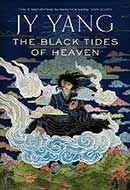 It’s brother against sister in J.Y. Yang’s novella The Black Tides of Heaven. Mokoya and Akeha are the twin children of the Protector, who sold them to the Grand Monastery as children. There, they developed their gifts—and began, despite their efforts, to drift apart. Akeha, seeing the rot at the heart of his mother’s rule, chooses to fall in with The Machinists, rebels who want to end the state. Can the siblings maintain their bond as they end up on different sides of a growing conflict?
It’s brother against sister in J.Y. Yang’s novella The Black Tides of Heaven. Mokoya and Akeha are the twin children of the Protector, who sold them to the Grand Monastery as children. There, they developed their gifts—and began, despite their efforts, to drift apart. Akeha, seeing the rot at the heart of his mother’s rule, chooses to fall in with The Machinists, rebels who want to end the state. Can the siblings maintain their bond as they end up on different sides of a growing conflict?
Little Brother by Cory Doctorow
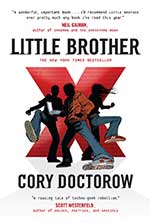 After a terrorist attack in his hometown of San Francisco, 17 year-old Marcus is swept up by Homeland Security for being in the wrong place at the wrong time. After days of being detained and mercilessly interrogated, Marcus is finally let go, and discovers that his world has changed. The US has become a police state, with everyone treated as a potential hostile. Privacy has gone the way of the dodo. Marcus isn’t about to take that lying down, though. It’s time to organize a cyber revolution.
After a terrorist attack in his hometown of San Francisco, 17 year-old Marcus is swept up by Homeland Security for being in the wrong place at the wrong time. After days of being detained and mercilessly interrogated, Marcus is finally let go, and discovers that his world has changed. The US has become a police state, with everyone treated as a potential hostile. Privacy has gone the way of the dodo. Marcus isn’t about to take that lying down, though. It’s time to organize a cyber revolution.
Dune by Frank Herbert
 In Frank Herbert’s classic science fiction novel, political instability is a fact of life for Paul Atreides. His father, Duke Leto, takes control of the planet Arrakis at the command of the Emperor, even knowing it’s likely a trap from House Harkonnen. Once the trap is sprung, Paul and his mother Jessica survive, fleeing to join the Fremen, the Arrakis natives who live in the desert. Using the Fremen as his fighting force, Paul embarks on a quest to take back Arrakis—and the galaxy—by overthrowing the Emperor and destroying House Harkonnen.
In Frank Herbert’s classic science fiction novel, political instability is a fact of life for Paul Atreides. His father, Duke Leto, takes control of the planet Arrakis at the command of the Emperor, even knowing it’s likely a trap from House Harkonnen. Once the trap is sprung, Paul and his mother Jessica survive, fleeing to join the Fremen, the Arrakis natives who live in the desert. Using the Fremen as his fighting force, Paul embarks on a quest to take back Arrakis—and the galaxy—by overthrowing the Emperor and destroying House Harkonnen.
The Star Wars Extended Universe
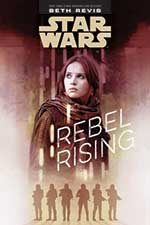 Star Wars: A New Hope introduced the world to the Rebel Alliance, an organized band of misfits opposing the colossal, evil Empire. After the original trilogy, the Star Wars universe expanded out into a universe of books, with stories from a wide variety of authors, following different characters and locations across the galaxy. In Rebel Rising, we see the rise of the evil Empire as well as the formative years of a soon-to-be hero of the Rebellion: Jyn Erso. How are heroes formed? This is how.
Star Wars: A New Hope introduced the world to the Rebel Alliance, an organized band of misfits opposing the colossal, evil Empire. After the original trilogy, the Star Wars universe expanded out into a universe of books, with stories from a wide variety of authors, following different characters and locations across the galaxy. In Rebel Rising, we see the rise of the evil Empire as well as the formative years of a soon-to-be hero of the Rebellion: Jyn Erso. How are heroes formed? This is how.

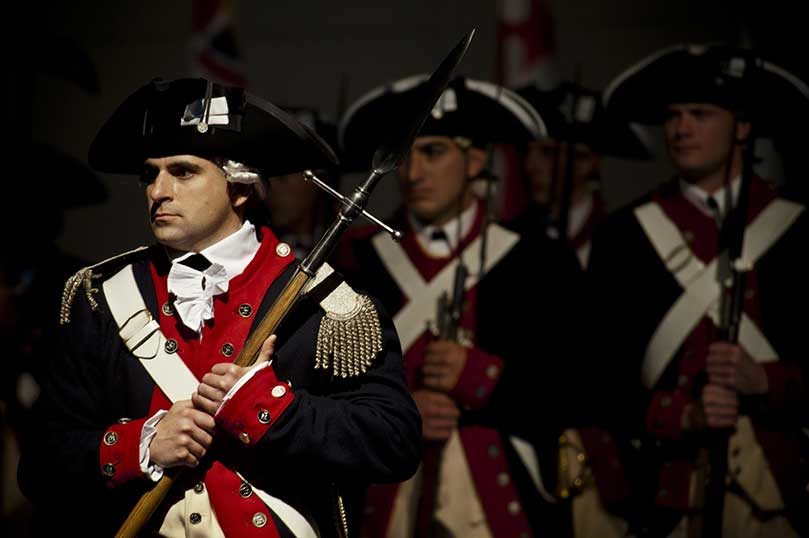



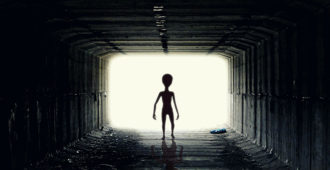
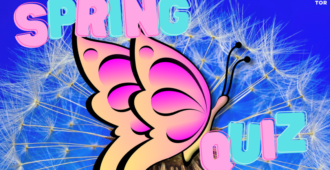
Chronicles of the Black Company, First Rule series.
The Crown Colonies by Michael Stackpole.
The Moon is a Harsh Mistress, Revolt in 2100, and Sixth Column, all by Robert A Heinlein.
Second Foundation by Isaac Asimov
SERIOUSLY! The Moon Is A Harsh Mistress should be at the top of the list!
A vote for RAH’s The Moon is a Harsh Mistress
The Moon is a Harsh Mistress by Heinlein.
The Traitor Baru Cormorant by Seth Dickinson.
The Moon Is A Harsh Mistress is an odd omission.
Red Rising??
I don’t think a SF revolution list is complete without 1984 or The Moon is a Harsh Mistress or the Dispossessed, is it? I mean Revolution SF is almost a genre unto itself, with a lot of history.
Julian May’s Pliocene Exile
Pierce Brown’s Red Rising series!! If you haven’t tried it, do so. I think it will leave you wanting more!!
Moon is a Harsh Mistress (your worst omision) plus Revolt 2100, Sixth Column, Between Planets, The Roads Must Roll all by Robert Heinlein
Second Foundation by Isaac Asimov
Yeah, I’m going to disagree with some of the other posters here. I don’t think The Moon is a Harsh Mistress is a significant omission. I’m personally quite fond of it, but honestly, it has not aged all that well. If we’re going to go for a representative of the old (and horribly pulpy) SF of my youth, I have to say that Dune was probably the best choice.
As long as we’re discussing old-and-pulpy, though (a topic about which I know more than I might sometimes wish), I have to give a shout-out to Pohl & Williamson’s Starchild trilogy.
I have very fond memories of “The Moon is A Harsh Mistress” but to be honest it is one of the classics that everyone argues over. For that matter I would include “Police your planet” by Fred Pohl.
Then you have to include “The Stainless Steel Rat for President” by Harry Harrison if you want a real Revolucion 🙂
Ayes of Texas by Daniel Da Cruz. The technology hasn’t ages well, but there was something about the story I loved.
Iron Council is a fantastic exploration of the ground level organizing (and infighting) on the ground leading up to, during, and after a revolution. Not shocked to see it omitted though since it’s not a well known book.
Yeah I think 1984 is as relevant to what’s going on today as any.
REVOLT IN 2100 by Robert A. Heinlein.
K.V. Johansen’s “The Leopard” and “The Lady” followed by “Gods of Nabban”
1984 has long transcended any generic classification